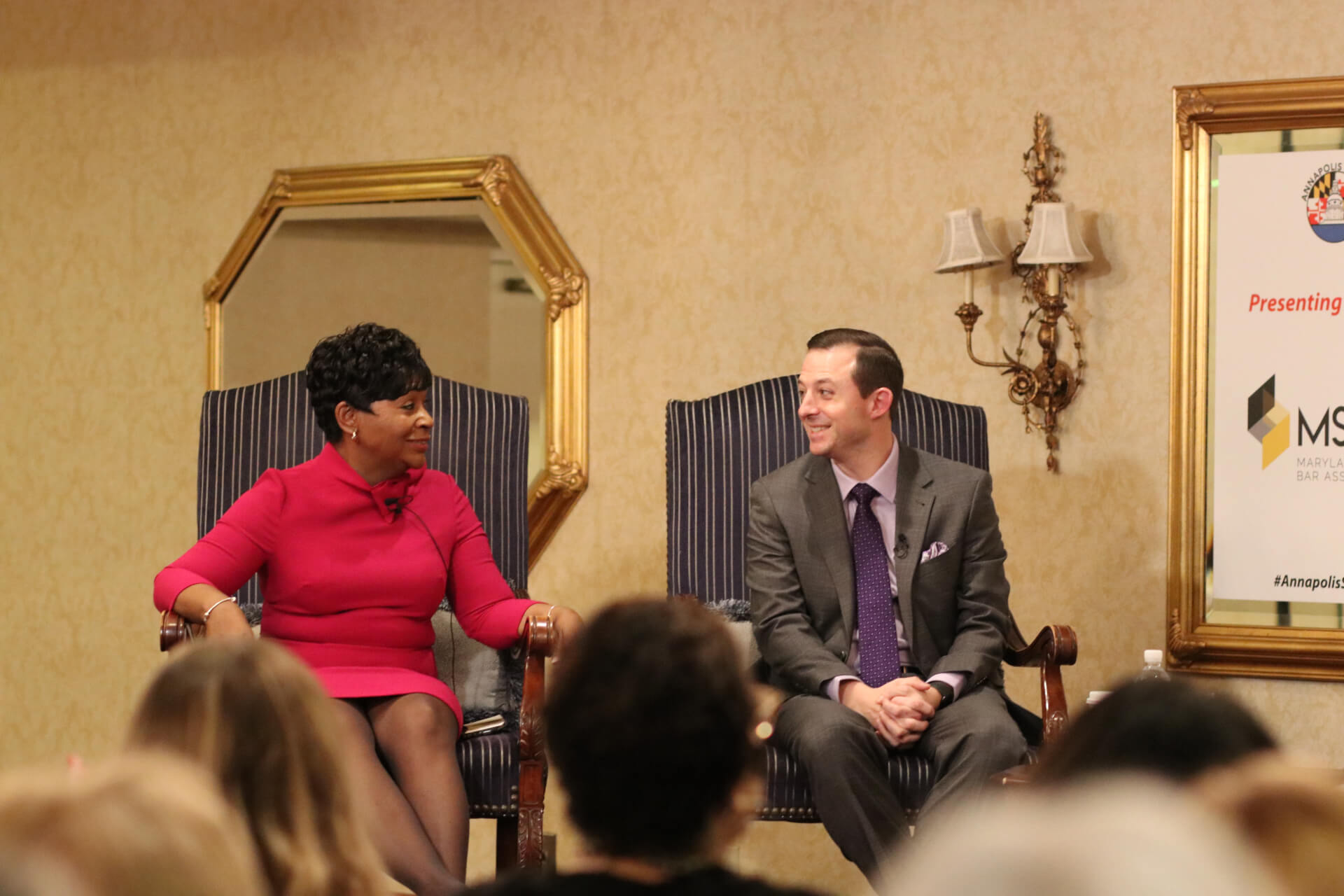Legislative Leaders, Frosh Lay Out Racial Justice Priorities for Legislative Session

Racial equity is slated to be a big-ticket item during the 2021 legislative session.
House Speaker Adrienne A. Jones (D-Baltimore County), Senate President Bill Ferguson (D-Baltimore City) and Attorney General Brian E. Frosh (D) have all convened workgroups to study the issue in recent months and this week released their respective legislative agendas.
“Here in Maryland and throughout the country, longtime systemic issues in education, health care, financing and so many other areas have persisted and too often have gone either unnoticed or unaddressed,” Ferguson said at a virtual news conference Monday. “In a state like Maryland, that is unacceptable.”
Ferguson initiated the Advisory Workgroup on Equity and Inclusion over the summer following several nationally highlighted instances of fatal police brutality against Black people.
The Senate president’s workgroup published 47 recommendations Monday rooted in environmental justice, health disparities and economic opportunity, including:
- Employing a pilot program that creates uniform mold assessment and remediation standards in two jurisdictions by June 2023;
- Extending Medicaid benefits for expecting mothers to up to one year after the birth of their child; and
- Reserving at least three positions on the state’s Procurement Improvement Council to minority business owners.
The bipartisan Senate workgroup, which was chaired by President Pro Tem Melony G. Griffith (D-Prince George’s), met bi-weekly to hear from experts and study legislation.

Senate President Pro Tem Melony G. Griffith (D-Prince George’s). Photo by Danielle E. Gaines.
“During our first meeting together, we established a safe and candid space for conversation around equity and inclusion,” Griffith said. “And we want to acknowledge that these conversations were sometimes uncomfortable, but because we had that first meeting it grounded us and prepared us for the substantial and substantive work that we did in the following months.”
Griffith said that many of the recommendations will manifest themselves as bills during the legislative session.
Frosh also released final recommendations Monday for his COVID-19 Access to Justice Taskforce, which he convened in June.
The task force report contains 59 policy and legislative recommendations across six categories, including housing, economic and food security, health equity, labor protections and adequate access to the state’s legal system, and was crafted by community leaders, nonprofit representatives and business, legal and academic stakeholders in conjunction with members of the General Assembly, Maryland’s congressional delegation and the judiciary.
“COVID-19 did not create the systemic failings and inequities of our social safety net and civil justice system. Rather, the pandemic exacerbated and brought to light these deficiencies and the significant harm they cause,” Frosh said in a statement. “I am hopeful that we have developed a roadmap to help Maryland recover from this crisis and to put the state in a stronger position to weather future health and economic crises.”
Among the workgroup’s dozens of recommendations were calls to give tenants the right to counsel during eviction proceedings, increase benefits provided under the Temporary Assistance for Needy Families and Supplemental Nutrition Assistance Programs and to make telehealth a mainstay in the state beyond the COVID-19 pandemic.
Jones tweeted out her racial and economic justice priorities over the weekend, which she has dubbed the “#BlackAgenda.”
This year, I’ve worked w/ dozens of local, state & national leaders to develop a Racial & Economic Justice agenda that I’ll outline in the coming days.
The agenda is focused on eliminating structural racism & more wealth inclusion for Black & Brown communities #BlackAgenda pic.twitter.com/rdoK7dhFB2
— Speaker Adrienne A. Jones (@SpeakerAJones) January 8, 2021
“The agenda is focused on eliminating structural racism & more wealth inclusion for Black & Brown communities,” she said.
Jones appears to be slowly leaking bits and pieces of her racial justice priorities, but so far has suggested her focuses surround:
- Racial inclusion in corporations;
- Equity for women and minorities in contracting for state projects;
- Impartiality in real-estate and home appraisal; and
- Employing an equitable loan process for businesses and entrepreneurs.




 Creative Commons Attribution
Creative Commons Attribution